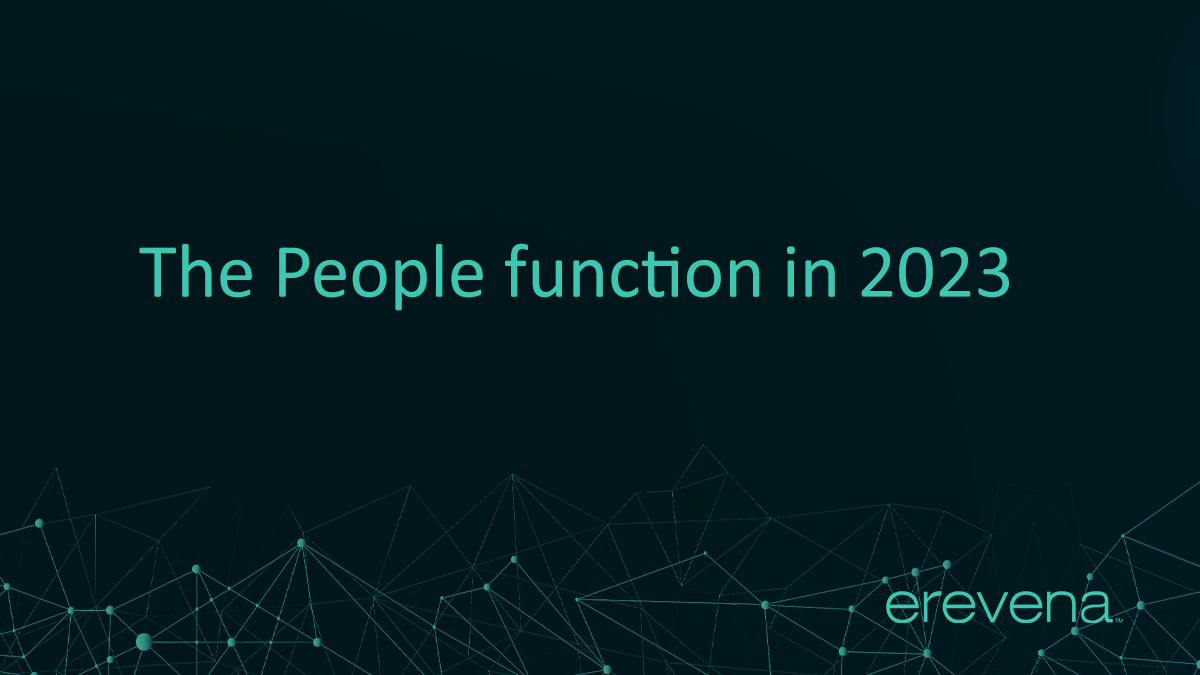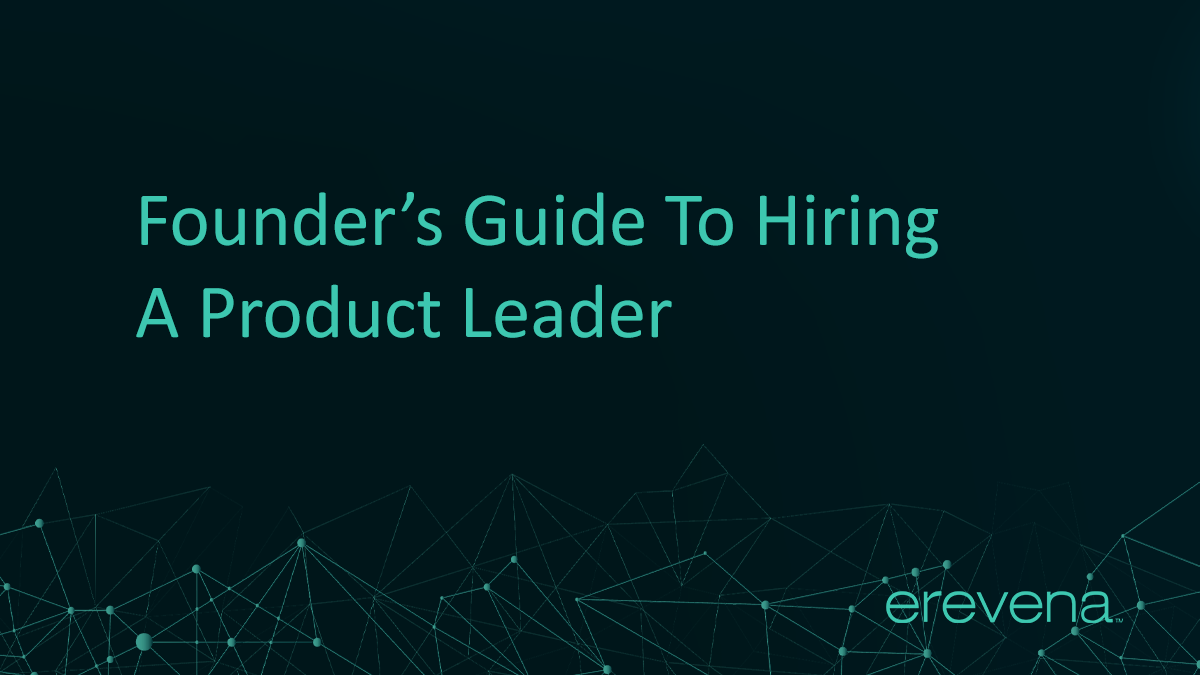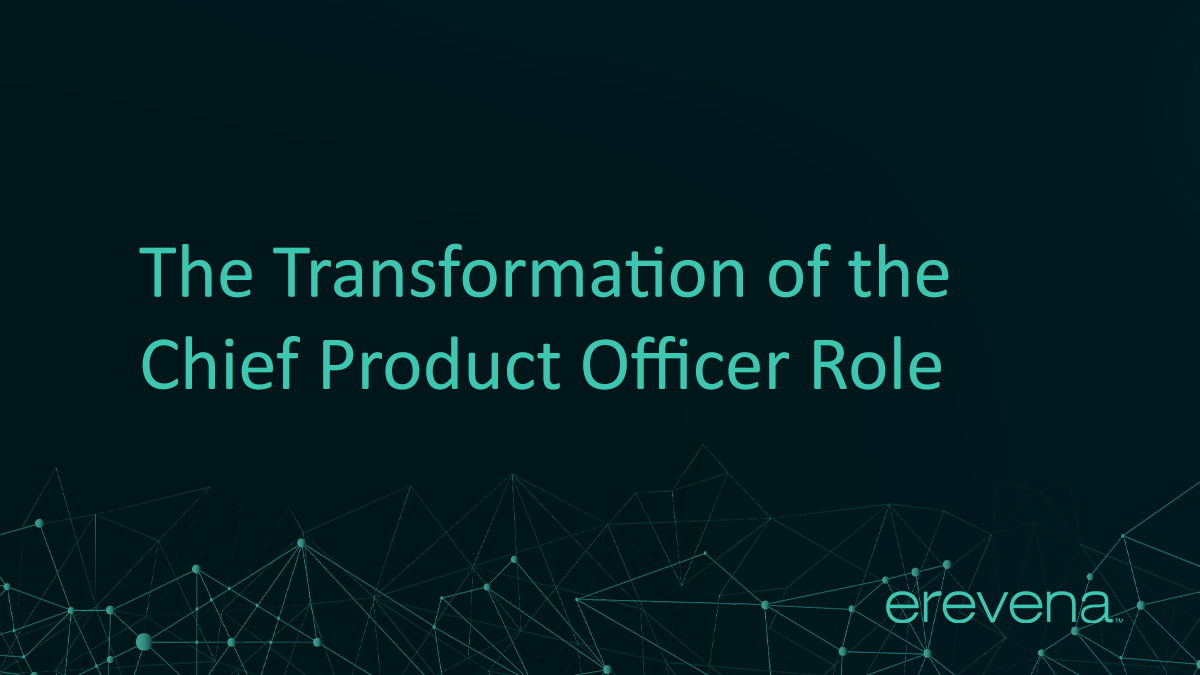How is the changing economy affecting the People function and what CEOs are looking for in a People executive? Chris Warner examines in more detail whether the move towards a more autocratic leadership style, as demonstrated by Elon Musk and Twitter, is an emerging trend or just an anomaly brought about by one of one of tech’s most polarising leaders?
Over the previous year we’ve frequently discussed with clients and candidates our belief that the biggest success factor for a Chief People Officer appointment comes down to whether there is a high degree of philosophical alignment between the candidate, the CEO, and the rest of the leadership team.
But, the economy feels very different compared to 9 months ago, and we want to explore subsequent changes in philosophical alignment in this new environment. What are the implications for People leaders? And what should CEOs thinking of making this hire might now consider?
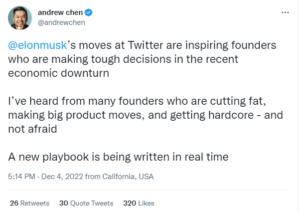
Previously, all things being equal, in terms of the technical expertise and stage-relevance of a particular candidate, the factor you needed to explore and understand is philosophical alignment. It’s the idea that, particularly in the People function and People strategy, how you see the world and how you do business has a significant impact on your employee value proposition. How you communicate, what you see as important, how you make decisions under pressure, what types of people you most naturally trust and why. If you can understand these factors, you can build an identifiable People strategy that derives from this philosophy. And if you can understand these aspects about yourself as a CEO or People leader, you can increase your chances of finding the executive partner that is right for you for the long term. You can read here our previous thinking on this topic.
This thinking was well understood during a period of very obvious power and leverage, both for People leaders that had never been in such high demand (particularly with the shift to remote-work during Covid) and for employees generally that experienced a talent market like nothing they had ever seen. This created dynamics where People leaders could be highly discerning, and had to be savvy around how they identified the right company fit for them among multiple, equally strong choices. And for employees – the great resignation showed companies that they had to think thoughtfully around retention strategies because employees had multiple good options elsewhere.
But how are these dynamics changing in an era where the game has changed? The pendulum seems to be swinging back in the companies’ favor. There is less demand for talent and more layoffs. There is a focus on runway and a shift from a growth at all costs mentality. There is an increased focus on driving performance, and a willingness to try to do more with less. And what does this mean for diversity and inclusion? Proponents of a ‘hardcore’ culture will argue that a performance orientated focus will allow the true difference makers to succeed and rise to the top regardless of gender, race or background. However, opponents will argue that this will lead to less thought being given to marginalized groups, working parents, and others.
This is not to say the only two choices for a philosophy in 2023 are going ‘hardcore’ and its polar opposite, as each company will be its own unique mix of ideas. The venture world is one where ideas are frequently shared, and Elon Musk’s leadership of Twitter is one very notable example of a CEO with a distinct philosophy. Partners at A16Z have been making the case that Elon is showing Founders the new playbook for these leaner times. Elon polarizes opinion, but makes a very interesting case study. He is very willing to cut deep; he’s happy to make perceived ‘harsh’ decisions and be almost unapologetic about doing so; and he has a belief that a leaner organization, fully aligned behind his vision and with less expectation on perks and work-life balance, will lead to Twitter being successful.
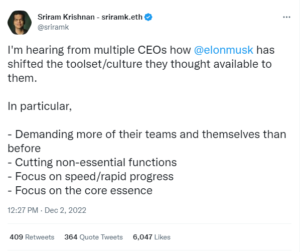
What is interesting is that in our searches for People leaders over the last 2 years, a much smaller proportion of candidates would have been philosophically aligned with Elon. Some people definitely were, but we know that many others would have found that environment a difficult one to work in. There’s no escaping it though – more companies will follow a similar or adjacent path. And this throws up a really interesting set of questions:
If we acknowledge the world has changed, to what degree will People leaders be willing to commit to a different kind of philosophy to their instinctive style of 2021? Will they even need to change? Will there be enough CEOs out there who subscribe to the previous era’s ideals on People strategy, or will the A16Z view that a new playbook is taking shape mean founders and People leaders will both be adjusting, and making different considerations as to what the right match for them is?
Essentially, will we see a different success factor for People searches in this era? Will it no longer be just predominantly about philosophical alignment, but also perhaps about a willingness to adapt? Will the cohort of People leaders establishing themselves today and working through this period end up retaining the practices applied in this age as part of their core philosophy? Or will people stay the same as people find it difficult to put aside core beliefs, leading to a different cohort of the candidate pool – one that was always instinctively more comfortable with a late-2022 approach – becoming more in demand?
Fascinating questions as we kick off 2023 – we would encourage founders and CEOs to think about what philosophical alignment means to you in this era. And for People leaders who may consider joining a new company, do you feel a need to adapt your philosophical ideals, or do you still believe the perfect team for you to join is out there as long as you’re willing to wait to find them?
Share this article:





